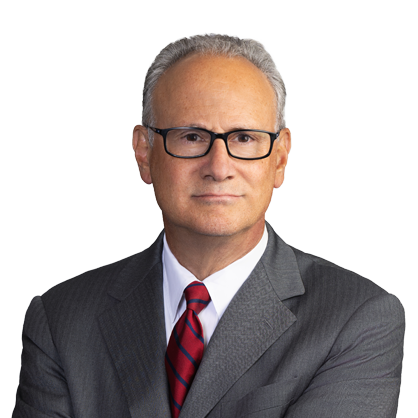Insights
Thought Leadership
Superior Court Upholds Statute for Contribution in Lieu of Property Tax Payment for Hospitals
In 2021, the New Jersey Legislature enacted L. 2021, c. 17, aka "Chapter 17," codified as portions of N.J.S.A. 54:4-3.6j(b) and N.J.S.A. 40:48J-1. This granted local property tax exemptions to nonprofit hospitals, even if areas of the hospitals are used by or leased to for-profit medical providers for medical purposes related to delivery of health care services directly to the hospital, provided that the portion of the hospital is used exclusively for hospital services, and it provided the hospital pay an annual community service contribution (the ACSC) to the municipality. Several plaintiffs, including four municipalities, challenged Chapter 17 in the Superior Court, Law Division, on the grounds that (1) it violates the uniformity clause of the New Jersey Constitution, (2) it violates the exemption clause of the New Jersey Constitution and invalidly permits the payment of an ACSC, (3) it constitutes special legislation, and (4) the retroactivity provision violates the plaintiffs' due process and equal protection rights. By its terms, Chapter 17 was applied retroactively and bars the imposition of omitted and regular assessments on such properties for tax years 2014 through 2020. The state of New Jersey moved to dismiss on the grounds that the complaint failed to state a cause of action for which relief could be granted.
The Superior Court sustained Chapter 17 in Colacitti et al. v. Philip Murphy, et al., Docket No. MER-L-738-2021, which was decided on July 22, 2022, but that decision was only just approved for publication on January 9, 2023. The court explained that nonprofit hospitals, if they met the requirements under N.J.S.A. 54:4-3.6, were entirely or partially exempt from real property taxation. However, in 2015, the Tax Court, in AHS Corp. v. Town of Morristown, 28 N.J. Tax 456 (Tax Ct. 2015), held, among other things, that the hospital in that case entangled and commingled its activities with various for-profit entities and therefore impermissibly "operated and used its property for a profit-making purpose," and therefore the entire portion of the property used as a hospital did not qualify for a real property tax exemption under N.J.S.A. 54:4-3.6. In response to that decision, the Legislature enacted Chapter 17 in an attempt to mitigate its impact, despite the fact that for-profit medical services commonly were being provided at nonprofit hospitals. The Superior Court noted that Chapter 17 was intended to resolve the conflict between the for-profit and nonprofit complexities of modern hospitals by establishing a clear and predictable system in which complex modern hospitals make a reasonable contribution to their host communities, while providing these hospitals a measure of tax relief to help them continue to fulfill their nonprofit mission. Nonprofit hospitals, in lieu of paying property taxes, would pay municipalities the ACSC to offset the cost of municipal services that directly benefit the hospitals and their employees.
In upholding Chapter 17, the Superior Court held that because, inter alia, the ACSC is a fee and not a tax, it is not violative of the uniformity clause. The court also found that Chapter 17 did not violate the exemption clause because, among other things, the clause is not so rigid that the Legislature is without any authority or discretion in the clause's application. The court reasoned that the line of inquiry for the exemption has simply shifted to where the focus is not on the mere presence of for-profit medical providers at the premises of a nonprofit hospital but rather on whether such presence complies with Chapter 17's conditions. The court also held that Chapter 17 was not unconstitutional "special legislation" because the basis of the enactment of Chapter 17 was to continue the property tax exemption for nonprofit hospitals, and in so doing, it acknowledged the obvious, practical, real-world operations of modern hospitals. The court reasoned the Legislature's basis for Chapter 17 was "rational and promote[d] the legislative and constitutional intent" of a tax exemption for nonprofit hospitals. For similar reasons, the court found that Chapter 17's retroactivity clause was not manifestly unjust and did not violate any of the plaintiff's equal protection or due process rights.
The court's decision in this regard is helpful in that it settles for the time being the efficacy of Chapter 17 and the validity of current ACSC payments being made by hospitals to municipalities. As noted above, although just recently published, this case was decided in July 2022. The court's decision has not been appealed. However, there are several assessment appeals pending in the Tax Court on hospital properties from prior to the enactment of Chapter 17, and they are subject to its retroactivity provision; it remains to be seen how the enactment of Chapter 17 will affect the resolution or disposition of those matters.
If you have questions about this alert, Chris Stracco can answer questions about real property tax issues, and Kate Coffey can answer questions about land use and development.





